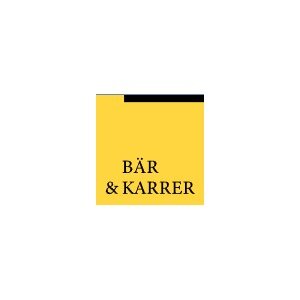Best Franchising Lawyers in Switzerland
Share your needs with us, get contacted by law firms.
Free. Takes 2 min.
Or refine your search by selecting a city:
List of the best lawyers in Switzerland
About Franchising Law in Switzerland
Franchising in Switzerland is a popular business model that allows entrepreneurs to expand their operations through a network of franchises. The country's stable economy and business-friendly environment make it an attractive location for franchisors and franchisees alike. However, unlike some countries, Switzerland does not have specific franchise laws. Instead, franchising is governed by a combination of contract law, competition law, and intellectual property law. Understanding these elements is crucial for both franchisors and franchisees who wish to engage in business in Switzerland.
Why You May Need a Lawyer
Engaging in franchising activities in Switzerland can be complex, and there are several situations where you might require legal assistance:
- Contract Negotiations: Drafting or reviewing franchise agreements to ensure they comply with Swiss law and protect your interests.
- Dispute Resolution: Handling disagreements or disputes that arise during the franchise relationship.
- Compliance: Ensuring that your franchise operation complies with Swiss competition and consumer protection laws.
- Trademark Issues: Dealing with intellectual property rights, including trademarks and brand protection.
- Business Strategy: Seeking legal advice when planning to expand your franchise network within Switzerland or internationally.
Local Laws Overview
Swiss franchising is primarily regulated through the following legal frameworks:
- Contract Law: Franchise agreements are treated as commercial contracts, with parties having freedom of contract within the boundaries of general legal principles.
- Competition Law: The Federal Act on Cartels and Other Restraints of Competition governs practices to ensure fair competition and prohibit anti-competitive agreements.
- Intellectual Property Law: Protects trademarks, patents, and copyrights involved in franchising arrangements.
- Commercial Code: Although no specific franchising law exists, relevant clauses within commercial law pertain to the operating of businesses and industry standards.
Frequently Asked Questions
Is there a specific franchise law in Switzerland?
No, there is no specific franchise law in Switzerland. Franchising is regulated by a combination of general contract law, competition law, and intellectual property law.
What should a franchise agreement in Switzerland include?
A franchise agreement should include key elements such as the rights and responsibilities of each party, financial arrangements, duration of the agreement, renewal terms, and how disputes will be resolved.
How is intellectual property handled in Swiss franchising?
Trademark protection is vital, and franchisors must ensure their intellectual property is registered with the Swiss Federal Institute of Intellectual Property to safeguard their brand within Switzerland.
Do I need to register my franchise with any governmental body?
No, there is no formal requirement to register a franchise with a government authority in Switzerland, but commercial and intellectual property registrations may be necessary.
Can a franchisee terminate the agreement early?
Early termination depends on the terms outlined in the franchise agreement. Legal counsel is advised if there is a need to explore potential exit strategies.
What are the competition law implications for franchises in Switzerland?
Franchise agreements must comply with Swiss competition law, which prohibits anti-competitive practices such as price-fixing and market allocation.
Are there disclosure requirements for franchisors?
While Switzerland doesn’t impose pre-contractual disclosure obligations, it's considered best practice to provide potential franchisees with relevant operational and financial information to facilitate informed decision-making.
How can disputes between franchisors and franchisees be resolved?
Disputes can be resolved through negotiation, mediation, or arbitration, with many franchise agreements stipulating these as preferred methods before litigation.
Is it necessary to have a local presence to start franchising in Switzerland?
While not obligatory, having a local presence or partner can be beneficial to navigate the Swiss market and regulatory landscape effectively.
What is the role of a master franchisee?
A master franchisee acts as an intermediary, operating franchises in a specific region on behalf of the franchisor, and can be responsible for recruiting new franchisees within that area.
Additional Resources
Several resources can provide additional guidance on franchising in Switzerland:
- Swiss Franchise Association: Provides support and resources for both franchisors and franchisees.
- Swiss Federal Institute of Intellectual Property: Responsible for trademark registration and protection.
- Chamber of Commerce: Offers guidance and advice for businesses looking to franchise.
- Legal Consultancies Specializing in Franchising: Expert legal services tailored to the franchising sector.
Next Steps
If you are considering franchising in Switzerland and need legal assistance, the following steps can help:
- Conduct initial research to understand the basics of franchising and the market landscape.
- Engage with a legal expert specializing in Swiss franchising to guide you through the process.
- Review all contractual and regulatory documents carefully with your legal advisor.
- Join franchising networks or associations for additional support and information.
- Ensure compliance with all relevant legal and commercial regulations to avoid potential pitfalls.
Lawzana helps you find the best lawyers and law firms in Switzerland through a curated and pre-screened list of qualified legal professionals. Our platform offers rankings and detailed profiles of attorneys and law firms, allowing you to compare based on practice areas, including Franchising, experience, and client feedback.
Each profile includes a description of the firm's areas of practice, client reviews, team members and partners, year of establishment, spoken languages, office locations, contact information, social media presence, and any published articles or resources. Most firms on our platform speak English and are experienced in both local and international legal matters.
Get a quote from top-rated law firms in Switzerland — quickly, securely, and without unnecessary hassle.
Disclaimer:
The information provided on this page is for general informational purposes only and does not constitute legal advice. While we strive to ensure the accuracy and relevance of the content, legal information may change over time, and interpretations of the law can vary. You should always consult with a qualified legal professional for advice specific to your situation.
We disclaim all liability for actions taken or not taken based on the content of this page. If you believe any information is incorrect or outdated, please contact us, and we will review and update it where appropriate.
Browse franchising law firms by city in Switzerland
Refine your search by selecting a city.















